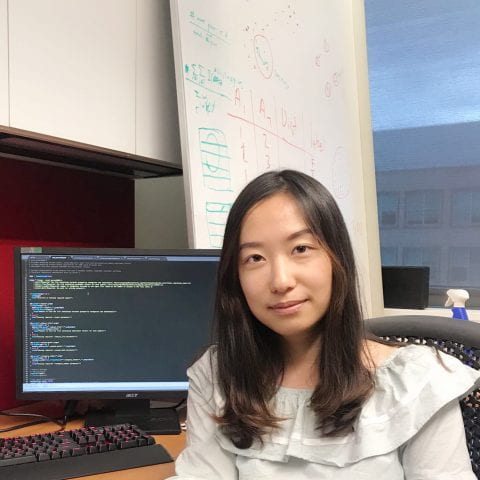Yingying Zhang (Yu Lab) Thesis Defense

Yingying Zhang (Yu Lab) will be holding her thesis defence on the 25th of April! She will be defending her thesis of the titile “Deciphering Multi-layer Functional Effects of Genomic Variants in Human Diseases.” This defence will be held on April 25, Thursday @ 4PM in Weill Hall 224. If you are unavailable to come in person, please tune in online at:
https://cornell.zoom.us/j/98033555516pwd=V2U4R2NCSk9qUUpXWk1pbDB4LzdiQT09
Meeting ID: 980 3355 5516
Passcode: 859535
Last of all, please join us in wishing Yingying the best of luck!
Abstract:
The increasing number of sequenced disease samples has yielded abundant mutation data, providing rich resources to explore mutation-driven disease mechanisms.
In this dissertation, I present my research on unraveling complex intermediate layers of how these alterations in DNA exert their functional effects in human diseases. We established a unified, end-to-end 3D structurally-informed protein interaction network propagation framework, NetFlow3D, that systematically maps the multiscale mechanistic effects of somatic mutations in cancer. The establishment of NetFlow3D hinges upon the Human Protein Structurome, a comprehensive repository we compiled that incorporates the 3D structures of every single protein as well as the binding interfaces of all known protein interactions in humans. Applied to 9,946 TCGA tumors across 33 cancer types, NetFlow3D identified 12,378 significant 3D mutation clusters throughout the Human Protein Structurome, of which ~54% would not have been found if using only experimentally-determined structures. It then identified 28 significantly interconnected modules within the PPI network that encompass ~8-fold more proteins than applying standard network analyses.
Furthermore, we developed an integrative framework to delve into the etiology underlying autism spectrum disorder (ASD), which combines: (i) a gene-centric statistical model integrating coding and noncoding evidence of rare variant association, (ii) likely altered PPIs–as revealed by the presence of damaging de novo missense variants on their 3D structural interfaces, and (iii) the topology of the PPI network. Our integration of noncoding data has nearly doubled the analytical power of gene discovery, revealing 44 novel ASD candidate genes with strong statistical support. Moreover, this framework identified 15 significantly altered modules within the broader PPI network, encompassing key biological processes such as synaptic formation and transmission, transcription regulation and chromatin remodeling, and intracellular signaling pathways–the latter is an emerging class as a result of our integration of noncoding data.
In summary, the theme of my thesis is identifying disease-associated variants and deciphering their complex mechanisms by combining complementary insights from molecular biology, genetics, and systems biology.
